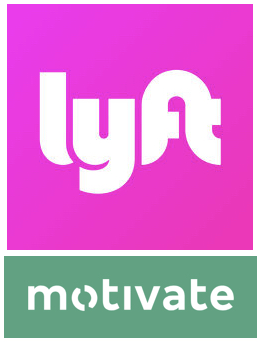Get used to saying Lyft Bikes.
For the past month there’s been widespread speculation that ride-sharing giant Lyft would purchase Motivate, the bike share company that operates Portland’s Biketown system (among many others).
Now the deal is official, which means Lyft is the owner of the contract between Motivate and the City of Portland. And with Motivate’s existing presence in major cities like New York (Citibike), Chicago (Divvy), Washington DC (Capital Bikeshare), San Francisco (Ford GoBike) and others, it gives Lyft 80 percent of all U.S. bike share trips and a massive mobility footprint.
Here’s the press release we just received from Lyft (emphases mine):
Introducing Lyft Bikes
We are excited to announce that Lyft has reached a transformative agreement to acquire Motivate, the largest bikeshare operator in North America. Together Lyft and Motivate will revolutionize urban transportation and put bikeshare systems across the country on a path toward growth and innovation.
“Lyft and Motivate have both been committed for years to the same goal of reducing the need for personal car ownership by providing reliable and affordable ways to move around our cities,” said John Zimmer, Lyft co-founder and president. “Bringing together Lyft and Motivate will accelerate our collaboration with cities and deliver even better experiences to our passengers and riders.”
This acquisition demonstrates Lyft’s commitment to a more sustainable world as part of our Green Cities Initiative, and comes on the heels of our recent carbon neutrality pledge. We will invest to establish bike offerings in our major markets and pursue growth and innovation in the markets where Motivate currently operates. We are particularly excited to work with cities on delivering innovation, including providing dockless and pedal-assist electric bikes to riders around the country, and Lyft will put resources behind the work that the Motivate team has begun.
As part of this agreement, Lyft is acquiring Motivate’s technology and corporate functions, including its city contracts. Motivate’s bike maintenance and servicing operations will remain a standalone business, retaining the Motivate name, and will continue to support bikeshare systems across North America.
Motivate brings a unique perspective on and expertise in operating bikeshare platforms in partnership with cities and local governments across the country. Motivate’s collaborative approach with cities mirrors the way Lyft has historically worked with regulators and aligns with our strategic vision for bikeshare nationwide.
Advertisement
Motivate operates many of the largest bikeshare systems in North America, including Citi Bike (New York), Ford GoBike (San Francisco Bay area), Divvy (Chicago), Blue Bikes (Boston metro area), Capital Bikeshare (Washington, D.C. metro area), BIKETOWN (Portland metro area), CoGo (Columbus, Ohio), and Nice Ride (Minneapolis). In 2017, 80 percent of the bikeshare trips in the United States were on Motivate-operated systems. The demand for bikeshare and the potential to serve even more Americans with this powerful urban transportation option are clear.
“How we get around cities is changing rapidly, and the combination of Lyft and Motivate will bring tremendous new resources and energy to making sure that bikeshare plays a fundamental role in the new urban mobility,” said Motivate Executive Chairman Steve Koch. “Together, we believe that integrating our services in partnership with the public sector will transform the urban transportation landscape, increase bike ridership, and make our cities better.”
Bikeshare is a natural extension of Lyft’s core approach to improving transportation access and building community through offerings such as shared rides and the integration of public transit in our app. These investments are making it possible to have fewer cars on the road and reduced congestion. Through Motivate’s efforts, bikeshare has been a safe, reliable, and equitable addition to the transit network in many major cities. Motivate has set industry best practices around community engagement and low-income bikeshare memberships. Transportation equity and inclusion are top priorities for Lyft as we enter the bikeshare space, and we plan to dedicate even more resources to make sure that our bikeshare programs are accessible regardless of riders’ income, especially in neighborhoods with limited access to public transportation.
This is an exciting moment for both Lyft and Motivate. Between us, we already serve tens of millions of riders every month, and we can’t wait to combine our unique talents to support cities in their efforts to bring sustainable transportation like bikeshare and rideshare to millions more people.
Portland-based micromobility expert Michael Naka says the move is all about real estate for Lyft. He says the company wants to build “mobility hubs” at the thousands of stations they now own near transit hubs and commercial destinations.
Here’s a few examples of what a Lyft “Mobility Hub” could look like.
Lyft’s Baltimore bikeshare hub partnership: https://t.co/P0XqyV1k4j
Lyft’s SFMTA Scooter Application: pic.twitter.com/ozUjR9feKf
— michal Naka (@michalnaka) July 2, 2018
In other local mobility news, dockless scooter company Bird has started hiring “chargers” in Portland (contract employees who can earn money by picking up and recharging scooters). Bird is one of five dockless e-scooter companies that have been invited to participate in a pilot program set to launch in Portland later this month.
— Jonathan Maus: (503) 706-8804, @jonathan_maus on Twitter and jonathan@bikeportland.org
Never miss a story. Sign-up for the daily BP Headlines email.
BikePortland needs your support.


